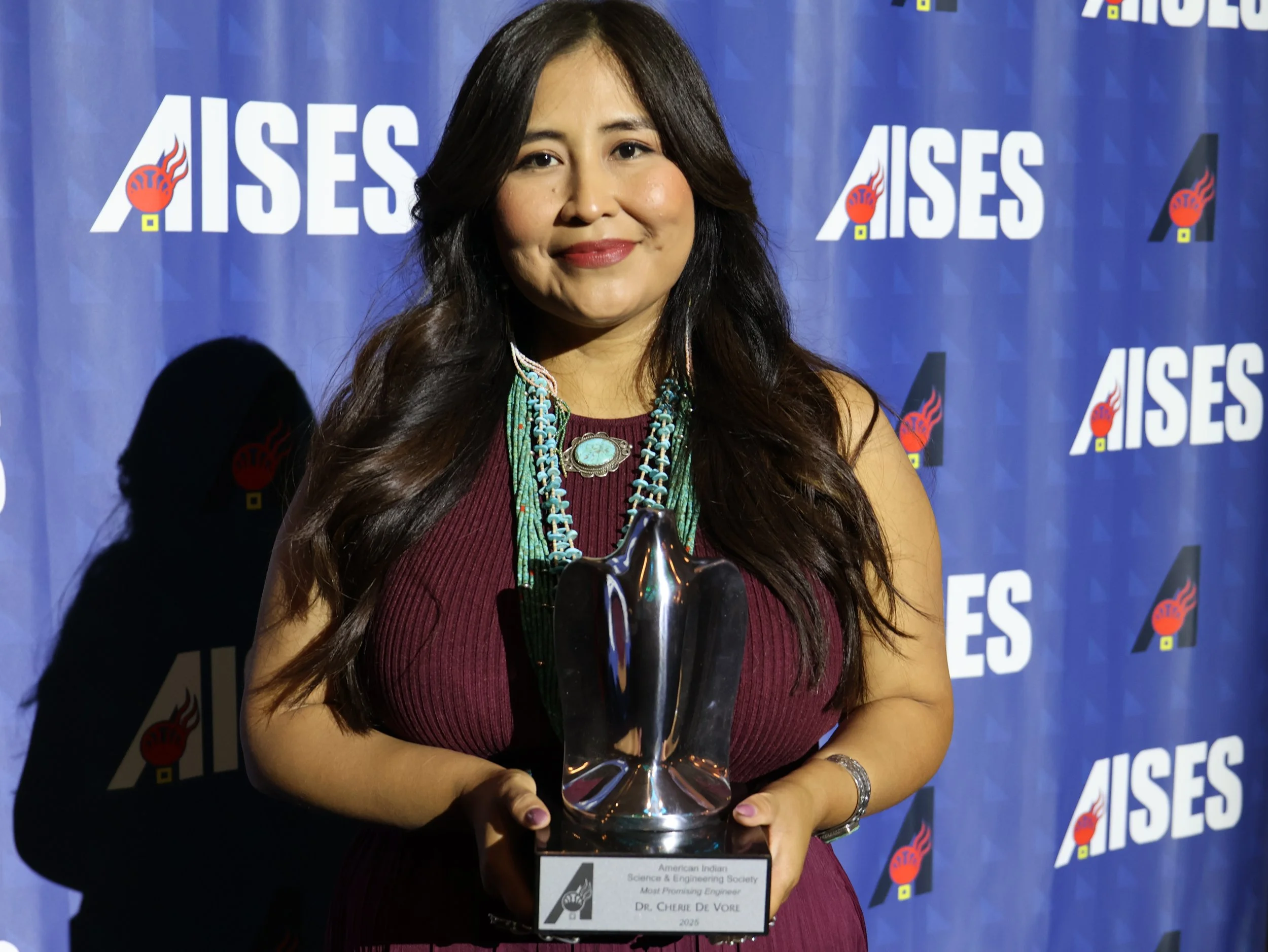Nihi Lab Members attend 2025 AISES National Conference (and win awards)!
The Níhí Lab Group was excited to attend the 2025 AISES National Conference in Minneapolis, MN. Nieves Vazquez (Huachichil Chicimecatl), Gwen Flores (Pasua Yaqui Tribe) and Jariah Callado (Jicarilla Apache), members of Níhí Lab, presented their research at the conference. Nieves Vazquez won the graduate poster award, and Gwen Flores won the undergraduate poster award. Congratulations to them! Dr. De Vore also received a very special award.
Jariah Callado shares, “Attending the AISES National Conference in Minneapolis was an incredibly inspiring experience. Seeing Indigenous students and faculty persevere despite the challenges we face in western society reminded me of the strength and resilience we all hold within. The conference was also a great reminder that western science is just beginning to acknowledge what traditional knowledge has always held. More than anything I left feeling grateful and honored to be part of a community that aligns with my values and beliefs as an indigenous scholar.”
Gwen Flores enjoyed her very first AISES conference, “It was an honor to attend my first AISES National Conference in Minneapolis, MN where I won in the undergraduate poster presentation category! My incredible mentor was named Most Promising Engineer and I was surrounded with culture, community and knowledge. A powerful moment for me was hearing Lt. Governor Peggy Flanagan speak and reflecting on how Western medicine is finally embracing Indigenous knowledge which is something our communities have known and practiced for generations.”
Dr. De Vore shares, “I am very happy and proud to see my students shine and thrive. Receiving the AISES Most Promising Engineer Award is an incredible honor, one that holds profound meaning because it comes from within the Native American STEM community across Turtle Island. To be recognized by my peers (brilliant Indigenous scientists, engineers, and mentors who have dedicated their lives to advancing our communities through science and sovereignty) is deeply humbling.”







